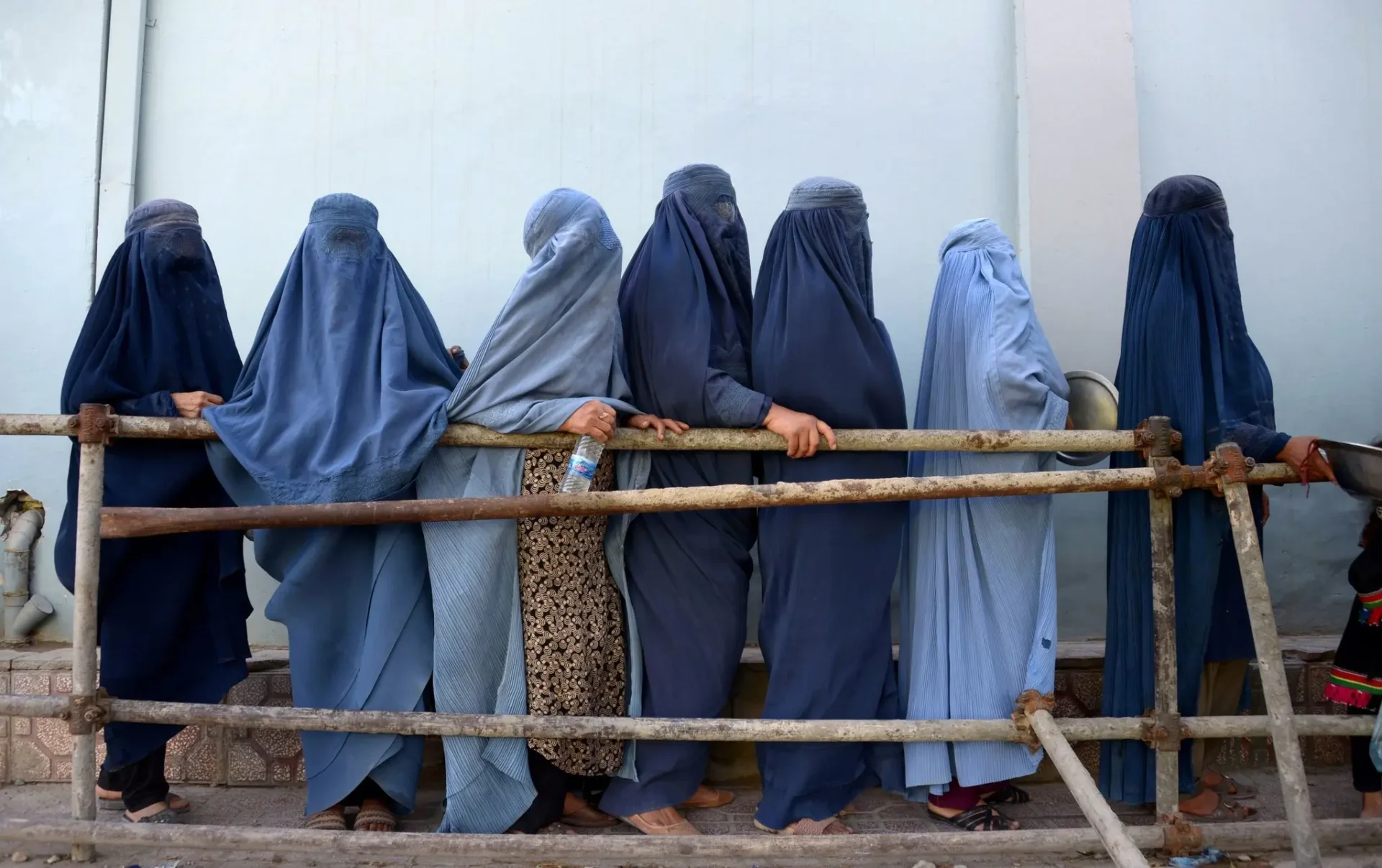In the heart of northern Afghanistan, 19-year-old Khushi, once a university student at the prestigious Balkh province university, finds solace in drawing. Her self-portrait poignantly captures her current reality: a figure, shrouded by a blue burqa, imprisoned within a cage.
The ambitious young woman once had dreams of navigating the realms of law and political science. However, the Taliban‘s decision to shut down tertiary institutions for women in December 2022 plunged her into a profound depression. “The day they announced girls could no longer pursue our education, I felt my world crumble,” Khushi recalled. Concerned about her deteriorating mental state, she sought help from a psychiatrist, who recommended art therapy as a medium for healing.
The Taliban’s decision to restrict women’s access to education was met with rare public protests. This, coupled with the closure of the majority of girls’ high schools and the prohibitive decree stopping most Afghan female humanitarian workers from functioning, drew stern international criticism. Many Western governments identified these repressive measures as significant obstacles to any potential recognition of the Taliban’s regime, which assumed power two years ago following the departure of foreign forces.
While the Taliban insists that their actions align with their understanding of Islamic law and Afghan culture, many women, especially in the urban regions, voice a different narrative. These are women who thrived during the 20-year foreign troop presence and under a Western-backed government, but now grapple with overwhelming despair and mental health issues.
Khushi’s psychiatrist lamented the stringent measures imposed by the Taliban administration. “They have taken away almost everything from women,” he stated. “Thankfully, art studios remain – our sole refuge. These spaces have transformed into hubs where girls can alleviate their minds, reconnect with friends, foster new bonds, and simultaneously hone their artistic skills.”
The doctor, who once catered to four or five patients daily, now reports a significant rise to 10 to 15, with the majority being women. He attributes this spike, in part, to the educational restrictions imposed by the Taliban.
Amidst this bleak backdrop, a quaint art studio in Mazar-i-Sharif serves as a sanctuary. The walls brim with vibrant paintings, and young women, including Khushi, gather to immerse themselves in pencil artistry. This therapeutic escape, coupled with conventional treatments like talk therapy and medication, offers them a semblance of normality.
One of the attendees echoed Khushi’s sentiments. “This studio, recommended by my doctor, not only introduced me to art but also to wonderful companions,” she mentioned.
Khushi’s journey, though marred by setbacks, epitomizes resilience. Through art therapy, she discovered a sense of achievement and a renewed hope for a brighter tomorrow. “Drawing bestows me with confidence,” she mused. “Despite the odds, I remain hopeful and will continue my fight for a better future.”
READ MORE:
